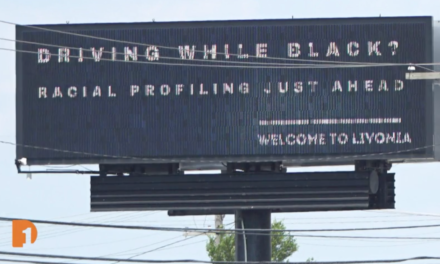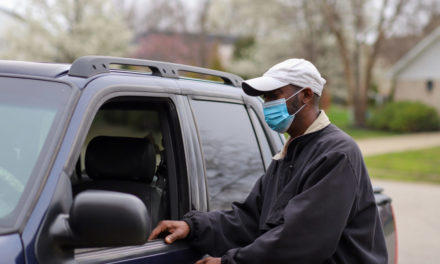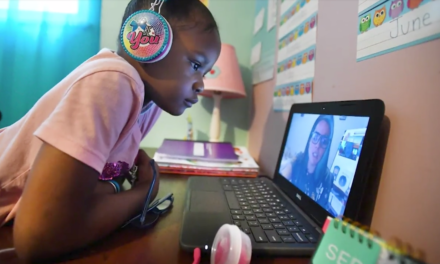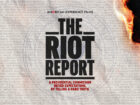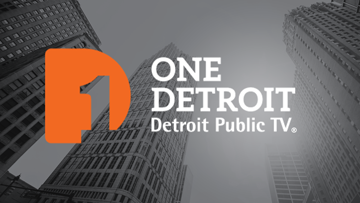“There is no question and no doubt that the African-American community has been disproportionately impacted by this by virus. And we understand that the virus doesn’t discriminate, but policies can and they do discriminate. We want to not just know this information, but to get some answers.”
Detroit City Council President Pro Tem, Mary Sheffield, talks with Stephen Henderson about demanding the Department of Justice to investigate potential civil rights violations when it comes to local, state, and federal leaders’ response to COVID-19. Sheffield, along with several dozen lawmakers, sent a request for the investigation to the Department of Justice last week.
Read full transcript
Stephen Henderson Okay, Mary Sheffield’s president pro tem of the Detroit City Council.
Mary Sheffield, President Pro Tempore, Detroit City Council Thank you for having me.
Stephen Henderson So we have in the city, of course, experienced firsthand how different the experience of this pandemic has been for African-Americans. I don’t think anybody who lives here has been spared that really personal experience with this and just how dramatic, how dramatically different it is for people in other places. There’s a lot of talk about why that’s true and what to do about it. You think that it’s time to take an extraordinary step, inviting the Department of Justice in to try to figure out if there’s wrongdoing at the bottom of this. Talk to me about that decision.
Mary Sheffield, President Pro Tempore, Detroit City Council Well, I think what we’re seeing in Detroit is not unique to just Detroit. We’re seeing this in urban communities across the country where black and brown residents reside. And we’re seeing a higher rate, a disproportionate rate of African-Americans who are being infected and unfortunately losing their lives to Covid-19.
And so we believe it’s not just me. It’s a number of elected officials that represent the city believe that we should have a thorough investigation from Department of Justice come in to look to see from a local, state and federal level how executives actually respond to this crisis. And if they did so in a way that further exacerbates some of the disparities that we currently see.
And so we know we’ve read several reports that, you know, individuals were trying to get tested and were denied in some cases. And this, again, is not just unique in Detroit. This is happening everywhere. And so, we believe that there could be cases where civil rights violations. There was civil rights violations and we believe that the Department of Justice should come in and do a thorough investigation and look at the response and what different cities responded to COVID-19.
Stephen Henderson In the release about this, you talk about not only things like testing, but the sharing of information. That is really interesting because we did have we had tremendous problems here in the city. I think with people really getting info that they needed before it was it was too late but the idea that that was perhaps criminal, which doesn’t necessarily mean intentional, right? I mean, there is such a thing as criminal negligence as well. Again, I think is another really, really dramatic step forward.
Mary Sheffield, President Pro Tempore, Detroit City Council No, I agree. And my thing is, you know, at the end of the day, this has impacted so many people, so many families and lives were lost. And so, if someone dropped the ball from the federal level and a dwindled down to the city level, local level, because we were trying to access information or resources, someone needs to be held accountable.
And there is no question and no doubt that the African-American community has been disproportionately impacted by this virus. And we understand that the virus doesn’t discriminate, but policies can and they do discriminate. We want to not just know this information, but to get some answers. We also know that there can be possibly a second round of this virus. And we want to make sure that this handle appropriately and at a rate in which people are getting tested and information at the speed at which can they can actually save people’s lives. So, this is very important to each and every one of us. No, we don’t believe that underlining issues are the sole cause of the reason which African-Americans have been disproportionately impacted by COVID-19. We believe that it plays a part in it. But could it could the executive branch of government, could, you know, government in general have responded at a better rate to help prevent some of what we’re seeing? We don’t know.
We believe that the Department of Justice should look very, very thoroughly at the way on which government has responded. And then we can also look to make sure that, you know, there’s been no civil rights violations as it relates to access to testing personal protective equipment and the list goes on and on.
Stephen Henderson Yeah, I imagine there are some people who will look at this and say, well, this is just casting the blame away from local officials and that it’s local officials who failed people in these cities. How do you answer that?
Mary Sheffield, President Pro Tempore, Detroit City Council Well, actually, the request is a request that the Department of Justice look at the local, state and federal executives on all levels. So, we’re not just pointing the finger at the executive branch. You want to look at city, state and federal, and not to say that we’re, you know, pointing a finger at anyone here in Detroit. Again, this is a national crisis and a national problem. We believe, look of getting city to see what went wrong. We can improve it. So, this is not just point the finger to the federal level. We believe that every branch of government in every level should be looked at very, very closely.
Stephen Henderson You talk about from the standpoint of the city council, how you feel we’ve done since all of this happened here in the city of Detroit. I mean, we were caught flat footed and no question about that, the city’s work. But we’ve seen a really different response over the last seven or eight weeks. Give yourselves—give yourselves and the administration here some assessment of how we did.
Mary Sheffield, President Pro Tempore, Detroit City Council You know, I have to be honest. When I was on the call with elected officials around the country and I was hearing some of what they are experiencing, I was quite pleased at the response in some of the testing efforts and the equipment that we’re getting to our first responders and essential workers at some of the policies that we had in place.
So, I am pretty pleased that what we’re doing it and the progress that we’ve made. I think the issue with the initial onset of this by race in cities that you are scrambling, trying to provide testing equipment is really my concern. But again, comparing Detroit to other cities, I will say that I am pleased at the city’s response in our commitment to our city employees, our workers, making sure that they have, you know, testing equipment. But again, I think that, you know, moving forward, there is definitely room for improvement. And we can definitely learn and make sure that we are ensuring that we are responding to this virus at the speed at which we need to save lives.
Stephen Henderson I think the real concern from a policy level is on now on the future. This is something that I hesitate to even say for fear of jinxing it, that we’d seem to at least have gotten a better handle on infections and deaths and really worried about. I’m really worried about the fall. I’m really worried about what happens next year. And from a policy level, there are a lot of things that we probably ought to be thinking about changing to make sure we do it differently if there’s another wave of this this disease.
Mary Sheffield, President Pro Tempore, Detroit City Council I agree, I agree wholeheartedly, and in fact, you know, I think about water affordability as one of them. You know, before this crisis took place, I was one of the council members that fought extremely hard to try to get water cut back on for low income residents in the midst of the crisis.
You know, it’s good for residents who have been struggling were able to get a restoration program going. We also talk about moratorium on foreclosures. I mean, rent assistance, all of these things are going to be needed from a sustainability standpoint. Something is going to have to be in place long term to address some of the issues that this virus is to bring.
So I think from a policy standpoint, my concern is how do we get some of these policies in place to make after this crisis like, you mention because waterfront ability is still be an issue, what if people can’t wash their hands and get rid of the restoration program? We’ll be in the same situation again where individuals could possibly be spreading this virus. So, from a policy standpoint, definitely looking at how we can sustain this place temporarily.
Stephen Henderson And the water question, I mean, I don’t think anybody really thought it was a great idea to be shutting people’s water off. I mean, everybody said when we went back to that, this is exactly the thing you have to fear, right?
Mary Sheffield, President Pro Tempore, Detroit City Council Yes.
Stephen Henderson It’s a public health crisis where people don’t have access to clean water. I do wonder, though, about the possibility of changing that in the short term so that even when the restoration program doesn’t it—doesn’t maybe continue, you don’t have these back debts that people have with the water department that could that could also lead to them losing water.
Mary Sheffield, President Pro Tempore, Detroit City Council Yes. I mean, I think that’s something that we need to look at. I know that the main issue is, you know, we have to figure out how to pay for any type of water—low income water plan in the city of Detroit and so you have to just be creative and innovative and find ways in which we can provide clean, safe water to low income residents in Detroit is something that I know all of us are committed to finding a solution on. But it’s definitely a priority for me as we continue to move out of this crisis and possible—possibly to a second wave of COVID-19.
Stephen Henderson OK. Well, Mary Sheffield, president pro tem of the Detroit City Council, it was great.
Mary Sheffield, President Pro Tempore, Detroit City Council Thank you.
Stephen Henderson Good to see that you’re doing well and.
Mary Sheffield, President Pro Tempore, Detroit City Council You as well.
Stephen Henderson Thanks very much.
Mary Sheffield, President Pro Tempore, Detroit City Council Thank you so much for having me.
Stephen Henderson OK, ok.
Mary Sheffield, President Pro Tempore, Detroit City Council Have a good day.
Stephen Henderson You, too.

